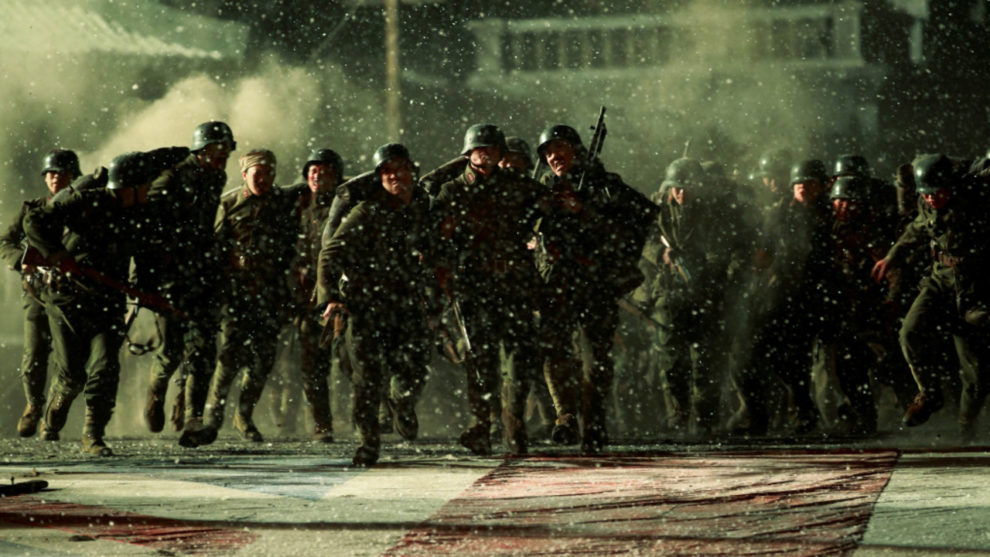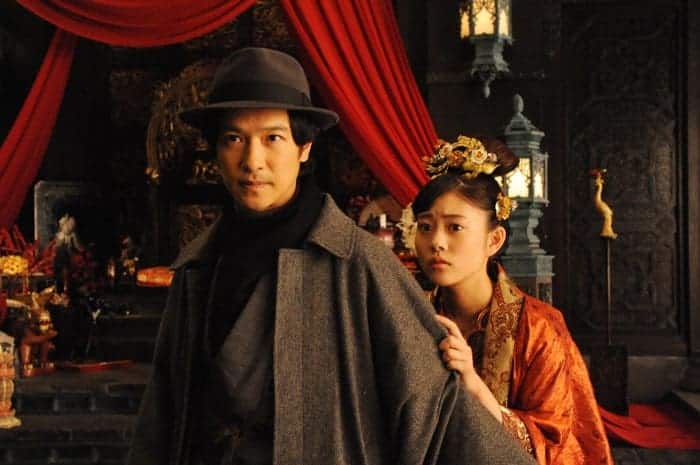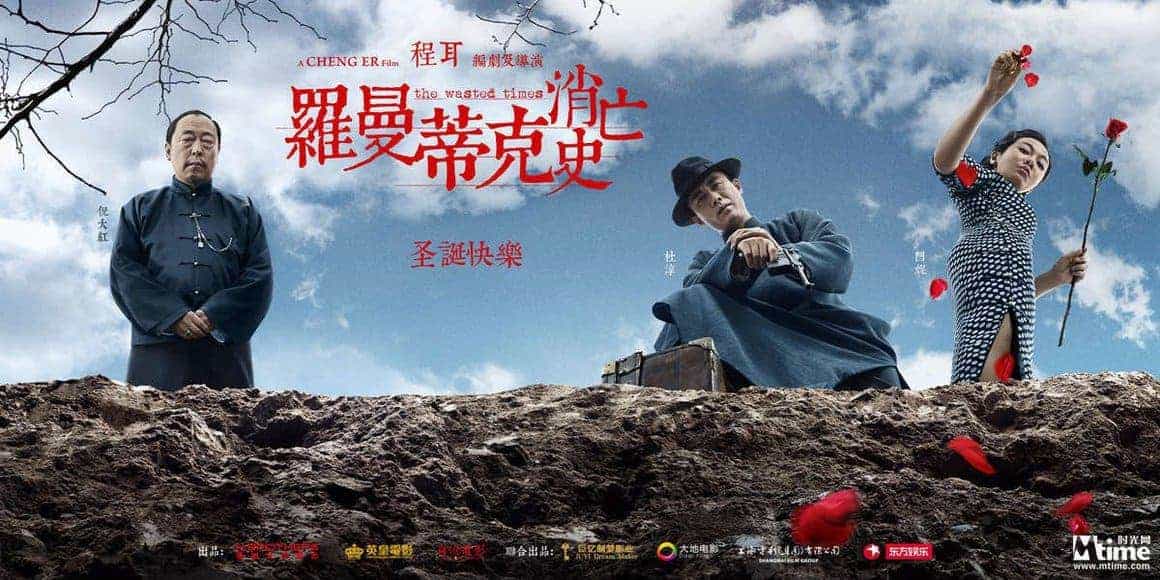by Daniel Eagan
Pulled from last year's Shanghai Film Festival, “The Eight Hundred” finally opened in China August 21. Despite restrictions on theater attendance, by August 26 it had grossed over $145 million, making it the first truly successful release there since the pandemic began. CMC is opening the movie in the US and other territories on Friday, August 28. (List of theaters)
Directed by Guan Hu (Mr. Six), the movie restages the siege of the Sihang Warehouse during the Battle of Shanghai in October, 1937. Invading Japanese forces greatly outnumbered the National Revolutionary Army. All China was threatened if Shanghai fell. The four-day battle took place directly across the Suzhou River from the International Settlement, where foreign correspondents covered the fighting for European and American outlets.
Guan, who also co-wrote the screenplay with Rui Ge, throws viewers directly into the battle, a tactic that reveals details about Shanghai as the soldiers themselves learn them. Built by the banks, the warehouse complex features massive walls, granaries, lofts, stables, canals to the river, all put into play as the story unfolds. At night, the soldiers gaze at an International Settlement ablaze with neon, customers crowding into casinos, nightclubs, and restaurants. By day, smoking ruins surround Sihang. Death is everywhere: by snipers, grenades, mustard gas, tanks, airplanes, and phalanxes of Japanese advancing under metal sheets. Those Chinese who try to flee the warehouse are shot by their own officers. Or by British troops who guard the settlement. Each day the fighting increases in intensity. On the second day, the Japanese bring in a bulldozer to breach the walls. This attack has it all: flamethrowers, bullets through heads, young students blown up, the Chinese girding themselves with explosives and jumping into hordes of Japanese, calling out their names as they die. It's a virtuoso display of rhythmic editing.
Working with an $80 million budget, Guan has the luxury of expanding scenes, slowing down time, flying the camera up to a Goodyear blimp, watching and waiting until a frightened soldier becomes a hero. What he can't do is elevate the material, drop the movie's tone of insistent hectoring. The relentless violence is ultimately exhausting. And Guan doesn't always resist the temptation to sentimentalize, to single out a frightened young girl across the river, or focus on a hardened veteran shedding a tear over a fallen comrade.
In style and technique, Guan borrows liberally from Western films like “300” and “Dunkirk” (especially in handheld shots following soldiers running into battle). “The Eight Hundred” has a modern, immersive sensibility. Dirt, blood, guts, explosions, the ominous score (by Rupert Gregson-Williams and Dunkirk's Andrew Kawczynski) all keep viewers on edge. The visual effects are stunning, as are the stunts and the sheer bulk and scale of the undertaking. And while there's never any doubt that the film is designed to glorify China's past, it simply can't be written off as mere propaganda like The Founding of an Army. Nor does it display the kind of gun-ho nationalism that marks films like “Wolf Warrior 2“. Perhaps it's because Guan centers his story around rural bumpkins, ineffective academics, petty crooks. Duan Wu (played by Oa Hao) and his teenage brother Xiao Hubei (Zhang Junyi) thought war would be a chance to visit Shanghai and find a boat to England. Abacus (Zhang Yi) insists that he is an accountant, not a soldier. Yes, they mostly turn into heroes, but they ground the film in a more difficult reality than we usually see from this type of state-sponsored storytelling.
Late in the film, Colonel Xie (Du Chun), the leader of the Sihang forces, meets with an emissary from the Kuomintang identified as a “Commissioner.” They debate whether the Chinese should surrender or continue fighting despite their assured defeat. Would the battle attract international attention, and perhaps support? Is resistance sending the wrong political message? Will provoking the Japanese cause more trouble? Should Xie sacrifice his troops to a futile cause?
These issues, and the questioning of the motives of leadership in general, aren't typically raised in Chinese war movies. Nor is the NRA usually treated so positively, which has led to some criticism from Chinese critics. Guan's unwillingness to condemn NRA head Chiang Kai-shek, and the fact that he shows only one shrieking, spitting villain instead of tarring all the Japanese, also may have contributed to the film's delayed release.
“The Eight Hundred” is the first Chinese production shot entirely with digital IMAX cameras. Even screened on a computer, the scope of the film is impressive. Digging past the surface morale boosting, you will find a darker story.















